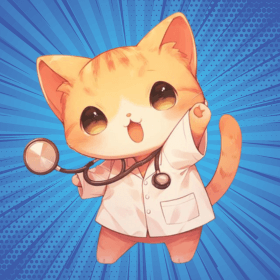How to Buy Insurance / Daylight Saving Time tires out everyone - especially drivers
Daylight Saving Time & Driving Dangers: How to Protect Yourself this Spring
Driving during the first few weeks of the DST time change isn't fun - and it's dangerous. Make sure you're protected!
Written by: Jazzmin Lu Reviewed by: Max Cho, Licensed Insurance Broker NPN 20377411
Even if you’re ready for Winter to end, Spring brings its downsides - including the dreaded daylight saving time change.
Did you wake up feeling especially exhausted this week?
We've all experienced those disorienting moments in the days after our clocks spring forward or fall back. Despite repeated Senate efforts to end Daylight Saving Time (DST), we’re still scrambling to adjust to a new time twice a year.
Beyond the grogginess and other negative health outcomes, researchers have discovered a concerning link between DST and an increase in road accidents. A study published in Current Biology reveals that the shift in time disrupts our circadian rhythms, leading to more accidents on the road.
"Spring DST transition acutely increases fatal traffic accident risk by 6% in the US."
Now that we’re adjusting to another week of time changes, it's crucial to remain cautious behind the wheel and a good time to make sure you’re adequately protected by your insurance policies.
How does Daylight Saving Time affect driving patterns?
Research suggests that the biannual clock changes associated with DST can lead to a spike in traffic accidents. Disruptions in sleep patterns caused by shifting the clock affects our circadian rhythm. That means drivers tend to have slower reaction times and are less alert. Mornings that start an hour earlier also mean more pedestrians, including children, traveling in the dark. All of these factors contribute to a 1-2 week adjustment period when roads are more dangerous and your driving risks are increased.
Why does insurance matter during DST?
No one wants to think about a crash or accident, but making sure you’re financially protected on the road is like wearing a seatbelt - you don’t think about it until you need it. One bad crash can end up costing you thousands of dollars in repairs, property damage, or medical bills. Unfortunately, many drivers don’t know how to get the right insurance to protect themselves and about one in seven drivers are uninsured.
Make sure you’re prepared for disaster with these easy tips!
1. Avoid Minimum Liability Coverage
As hospital and car repair costs rise, resist the temptation to opt for minimum coverage.
When you buy insurance, the most important financial tool you’re buying is “liability coverage”, which contains Bodily Injury and Property Damage. This pays for the other party’s property, injury, or even death if you’re in a crash, and is what most states require to drive legally. But, in most states, your required minimum is low and probably won’t cover the costs of a major accident. In California, for example, drivers are only required to have Bodily Injury coverage of $15,000 per person, $30,000 per accident and property damage coverage of $5,000 per accident. Car repairs and hospital bills can easily go above $5,000 or $15,000 - so if you’ve just been buying minimum insurance, it’s time to re-evaluate.
2. Evaluate your need for Collision and Comprehensive Coverage
Collision and Comprehensive coverage provide protection against damages to your own car. While we think it’s always a good idea to assess whether it’s a necessary expense, make sure you’re not driving without this coverage if it’s required. If your car is leased or financed, you might be required to carry both coverages. We also recommend purchasing this coverage if the cost of repairing or replacing your car would pose a significant financial risk.
3. Avoid Insurance Lapses
Renewing insurance can be a chore, especially when you’re moving or just got a much higher bill. Letting your insurance lapse, however, is a risky financial decision. If you’re found at fault in an accident, you’re completely financially liable. On top of that, letting your coverage lapse usually raises your premiums when you reinstate your policy. Even if your new bill is too high, it’s always best to renew and then shop around - just remember that you can cancel your policy at any time for a prorated refund!
4. Cover All Household Drivers
If you share a home with anyone else who has access to your car, such as significant others, children, extended family or even roommates, it’s important to cover them on your policy or make sure they’re only driving your vehicle if they’re insured on a separate policy. Listing everyone who regularly uses your vehicle avoids complications in the event of an accident, and can keep insurance companies from denying a claim when someone else drives your car(s).
5. Raise your coverage as your net worth increases
Life circumstances change, and so should your insurance coverage. Many drivers stick with the first insurance coverage they buy year after year, and if that was the cheapest minimum coverage - it could be severe underinsurance. As your net worth increases, so does your liability risk, and even the best car insurance policy isn’t enough to protect you sometimes. Most insurance companies offer a maximum of $500,000 in Bodily Injury and Property Damage coverage (although a few companies go up to $1 million) - which isn’t enough when your assets rise above $1 million. At that point, it’s worth considering a personal umbrella policy, which can extend your coverage by $1-$10 million, usually for a few hundred dollars a year.
Need help re-evaluating your car insurance and net worth protections this Spring? Try Coverage Cat for free, optimized insurance quotes.
Be proactive and implement these insurance tips to navigate the hazards of daylight saving time and protect yourself from unexpected twists and turns.
Copyright © 2024 Coverage Cat. All rights reserved.
Built with ♥ in 🗽
Coverage Cat, Inc. is a licensed insurance broker (or producer). In California Coverage Cat does business under the name Coverage Cat Insurance Services. Coverage Cat’s license numbers are listed here. Coverage Cat places insurance with a number of insurance companies, each of which is not an affiliate of Coverage Cat.



